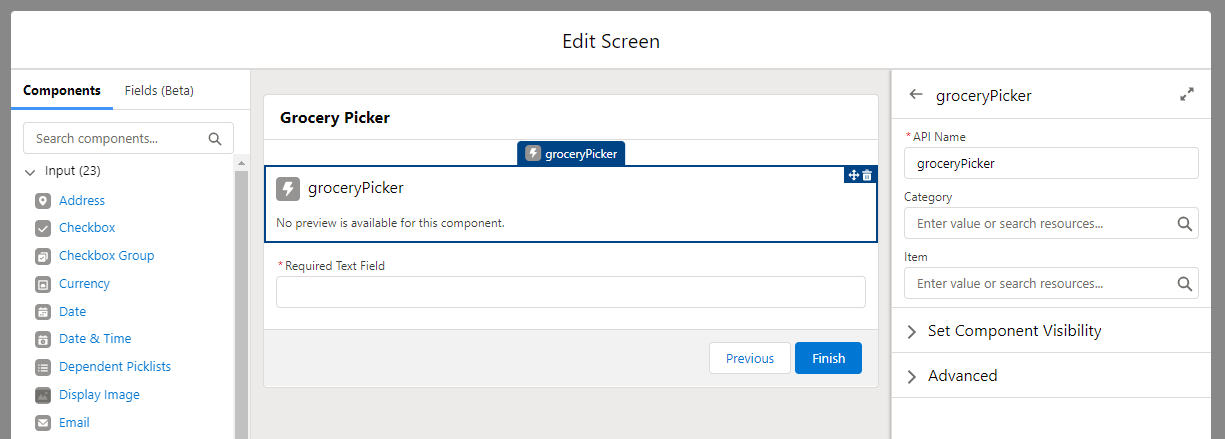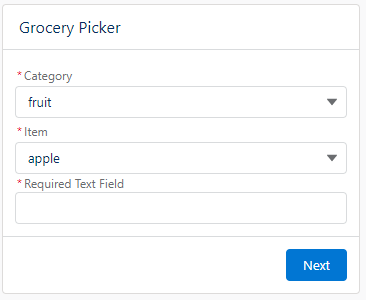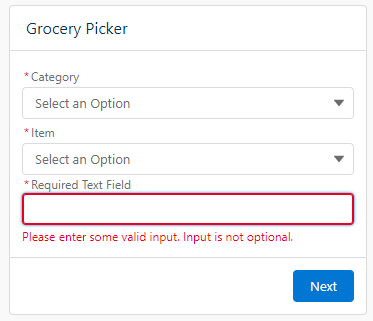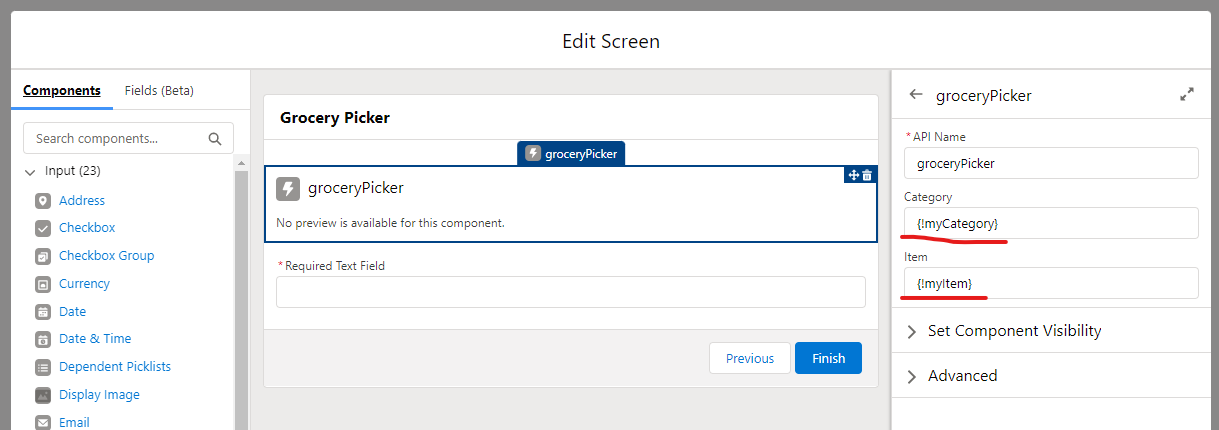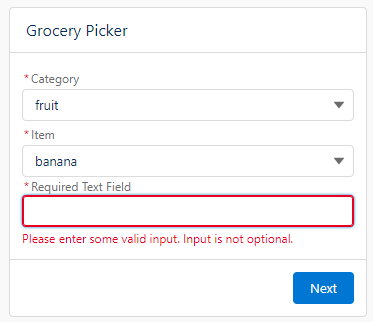Problem
When creating a LWC FSC, the internal state of the LWC is reset when the user navigates to another page and back, or attempts to navigate to another page but is kept on the same page due to a validation error (e.g. a required field is missing a value)
This results in the LWC losing the information provided by the user, and the user then needs to re-enter that information.
In the Demo below, if I provide a variable for the input parameters into my LWC FSC, the state of that variable is maintained. The problem is, I don't want to expose all internal variables as an input/output of the flow. In this demo, I don't want to pass in category. I don't want category to be defined as an input or output.
Question
Is there a way to maintain the state of an LWC, without the flow itself needing to pass the data into it?
Demo
(this isn't the best example, but the simplest I could think of)
My LWC helps the user select a fruit/vegetable from a grocery picker. The fruit/veg is the output, and there is a category of fruit or veg.
html
<template>
<lightning-combobox
name="category"
label="Category"
value={category}
options={categoryOptions}
required="true"
onchange={handleCategoryChange} >
</lightning-combobox>
<lightning-combobox
name="item"
label="Item"
value={item}
options={itemOptions}
required="true"
onchange={handleItemChange} >
</lightning-combobox>
</template>
js
import { LightningElement, api } from 'lwc';
const GROCERIES = {
fruit: ['banana', 'apple', 'orange'],
vege: ['cabbage', 'lettuce', 'carrot']
};
export default class GroceryPicker extends LightningElement {
@api category;
@api item;
get categoryOptions() {
return Object.keys(GROCERIES).map( element => {
return {
label: element,
value: element
}
})
}
get itemOptions() {
return this.category && GROCERIES[this.category].map( element => {
return {
label: element,
value: element
}
})
}
handleCategoryChange(event) {
this.category = event.target.value;
}
handleItemChange(event) {
this.item = event.target.value;
}
}
config
<?xml version="1.0" encoding="UTF-8"?>
<LightningComponentBundle xmlns="http://soap.sforce.com/2006/04/metadata">
<apiVersion>53.0</apiVersion>
<isExposed>true</isExposed>
<targets>
<target>lightning__FlowScreen</target>
</targets>
<targetConfigs>
<targetConfig targets="lightning__FlowScreen">
<property name="item"
type="String"
label="Item"
required="false"
/>
<property name="category"
type="String"
label="Category"
required="false"
/>
</targetConfig>
</targetConfigs>
</LightningComponentBundle>
Setup in the flow
Note the item and category don't have an input value
Before clicking next
After clicking next
When clicking next, the flow leaves us on the same page due to the required text field failing validation. The category/item are cleared.
Update FSC to pass in item/category
Set the LWC FSC inputs. myItem and myCategory are flow text variables without any value.
Now item/category values are retained when clicking next, even though there's a validation error.

